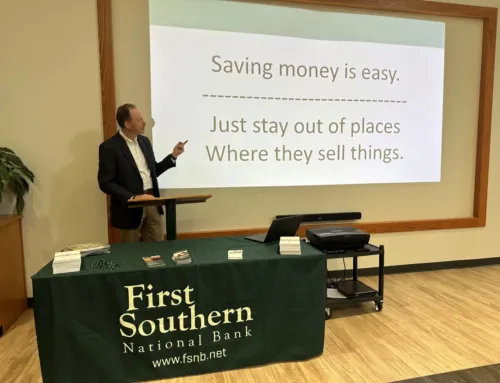The holidays are a time of giving. Here are some tips to make sure scammers aren’t taking advantage of your generosity this Christmas season!

Online Shopping Scams
Scammers often offer too-good-to-be-true deals through advertisements or phishing e-mails. These schemes often offer brand-name merchandise at extremely low prices. Consumers should avoid untrustworthy sites or advertisements.
Social Media Scams
Consumers should beware of posts on social media sites that appear to offer vouchers or gift cards through promotions or contests. These scams often lead consumers to participate in an online survey that is designed to steal personal information. Also, be leery of friend requests received from businesses or individuals you have already followed or connected with. Many spammers create duplicate or spoof accounts in an attempt to steal personal information.
Gift Card Scams
Consumers should be careful if someone asks them to purchase a gift card for them through a fake e-mail, phone call, or text. Always verify the identity of the person and the reason for the purchase through other methods of communication. These incidents are often paired with a fraudulent wire transfer.
Charity Scams
Be wary of false charities requesting donations during the holiday season. Verify the charity through research as well as links to payment portals. The solicitations can appear through any form of communication including social media, mail, e-mails, phone calls, and texts.
Stolen Passwords
Many fraudsters will purchase items through your online shopping account from prior breaches of retailer websites. Change your passwords often, use different and complex passwords with characters, numbers, and symbols, and utilize multi-factor authentication when possible.
Public Wi-Fi
Beware of Public Wi-Fi. Do not conduct online shopping or banking using public Wi-Fi networks. There is no guarantee as to how secure the network is or who may be intercepting your transactions.
Too Good To Be True
Be Aware! Remember, if the offer sounds too good to be true, then it probably is.



